- Home
- Rosamunde Pilcher
Wild Mountain Thyme Page 15
Wild Mountain Thyme Read online
Page 15
Victoria said, “I feel so badly, us arriving to stay so soon after … I mean, we didn’t know, you see…”
She stopped, lost in confusion and wishing that she had never started, but Ellen was quite unperturbed.
“You mean, the laird dying so suddenly like that, and the funeral only yesterday?”
“Well, yes.”
“It was a beautiful funeral. All the grand people were there.”
“I’m sure.”
“Mind, he was a lonely man. He had no children of his own, you see. It was a great sorrow to Mrs. Jock that she was never able to have any babies. ‘There you are Ellen,’ she used to say, ‘and there’s the empty nursery upstairs, waiting for the babies, and it doesn’t look as though there’s going to be a single one.’ And, indeed, there wasn’t.”
She put another finger of toast into Thomas’s hand.
“What happened to her?”
“She died. Five years ago or more. She died. She was a beautiful lady. Always laughing.” She told Thomas, “Yes, yes, you are eating a splendid breakfast.”
“Didn’t your baby … didn’t Charlie ever have any children?”
“Oh, yes, Charlie had a boy, and what a bright little lad he was. They used to come over for the summers, all three of them, and what good times those were. Picnics up the hill or on the beach at Creagan. ‘I’ve too much to do in the house to come for picnics,’ I used to tell him, but John would say, ‘But Ellen, you must come too, it’ll not be a proper picnic without you.’”
“He was called John.”
“Yes, he was named for the Colonel.”
“You must have missed him when he had to go back to America.”
“Oh, the place seemed empty after they had gone. Like a tomb.”
Victoria, watching Ellen, suddenly liked her very much. She stopped feeling intimidated or even shy. She said, “I knew a little bit about Benchoile before I got here yesterday, because I’d read all Roddy’s books.”
“Those were the best times of all, when the boys were young. Before that war.”
“He must have been a funny little boy with all his strange pets.”
Ellen clicked her tongue and held up her hands in horror at the memory. “I sometimes thought he’d be the death of me. Just a wee devil. He looked like an angel, mind, but you never knew what Roddy would be up to next. And when it came to washing his clothes, as likely as not the pockets would be filled with mealy worms.”
Victoria laughed. “That reminds me,” she said, “I wonder if there’s somewhere I could do some washing. We’ve been traveling for four days and I haven’t been able to wash anything, and soon we’re all going to run out of clothes.”
“You can put them in the washing machine.”
“If I brought it all over to the big house after breakfast, perhaps you could show me where the washing machine is, and how to use it.”
“Now, you don’t worry about that. I’ll see to the washing. You don’t want to spend your holiday doing washing. And…” she added, with cunning innocence “… if you should want to be away on a wee outing with your husband, I could keep an eye on the child for you.”
She was obviously longing to get her hands on Thomas, to get him to herself. Victoria thought of the letter she was going to write. “I ought to do some shopping, in that case. We seem to have run out of toothpaste, and Oliver’s bound to want cigarettes. If I took our car to Creagan this morning, would you really look after Thomas for me? He doesn’t like shopping very much.”
“And why should he like shopping? It’s a dull occupation for a little man.” She leaned forward, nodding her head at Thomas as though already they had some sort of a conspiracy going between them. “You’ll stay with Ellen, won’t you, pet? You’ll help Ellen with the washing?”
Thomas stared at the small brown wrinkled face bobbing up and down so close to his own. Victoria watched for his reaction to this in some anxiety. It would be embarrassing if he screamed and hurt Ellen’s feelings. But Thomas and Ellen recognized each other. They were years apart in age, but they both belonged to the same world. Thomas had finished his breakfast. He got off his chair and rescued Piglet from the floor by the refrigerator and took him to show Ellen.
She took the pig and bounced him up and down on the table as though he were dancing.
Kitty Birdy had a pig
She could do an Irish jig
sang Ellen in her cracked old voice. Thomas smiled. He laid his hand on her knee, and her own gnarled hand came down to close on the fat fingers.
* * *
It was amazing how simple, how straightforward, things became as soon as you had reached a decision. Problems ironed themselves out, difficulties dissolved. Ellen bore Thomas and the washing away, thus relieving Victoria, in a single stroke, of two of her most pressing commitments. Roddy and Oliver, probably sleeping off the brandy they had consumed the evening before, had still not appeared. Victoria, in search of writing paper, went into Roddy’s living room and found the curtains still undrawn and the atmosphere thick with stale cigar smoke. She drew the curtains and opened the windows and emptied the ashtrays into the remains of last night’s fire.
In the letter rack on Roddy’s littered desk, she found writing paper both plain and headed. She hesitated for a moment, debating which to use. If she used the plain paper, and wrote no address, then Mrs. Archer would still not know where to find them. But surely this smacked a little of secrecy, as though she and Oliver really had something to hide.
Besides, the headed paper, thickly embossed, had a certain opulence about it, which would in itself be reassuring. “BENCHOILE, CREAGAN, SUTHERLAND.” She imagined Mrs. Archer being impressed by the very simplicity of this. So she took a sheet of the headed paper, and found an envelope lined with dark blue tissue. She found, in a tarnished silver mug, a ball-point pen. It was as though some person had arranged it all, ready for her, making it even easier.
Dear Mrs. Archer,
I am writing to let you know that Thomas is well and very happy. Ever since we left London, he has been very good, hardly cried at all, and has never woken up at nights. He is eating well, too.
She paused, chewing the pen, debating whether she should tell Mrs. Archer that not once had Thomas asked for his grandmother. She finally decided that this would not be tactful.
As you can see we are now in Scotland and the sun is shining, so maybe we will be able to take Thomas to the beach.
She paused again, and then went on to the final and most tricky bit of all.
Oliver does not know I am writing to you. We did discuss it, but he was very against the idea. So perhaps it would be better if you do not acknowledge this letter or try to get in touch. I will write later again and let you know how Thomas is.
With best wishes,
Yours sincerely,
Victoria … Victoria what? She was not Victoria Dobbs and she no longer felt like Victoria Bradshaw. In the end she wrote just her Christian name and left it at that. She put the letter into its envelope and put the envelope into her cardigan pocket. Downstairs, she crept into the bedroom and collected her handbag with her money in the wallet. Oliver hadn’t moved. She let herself out again, and got into the Volvo, and drove herself to Creagan.
* * *
Roddy Dunbeath, wearing a large blue-and-white striped apron which made him look like a successful pork butcher, stood at the counter in his little kitchen, chopped vegetables for the lunchtime pot of soup, and tried, at the same time, to disregard the fact that he was suffering from a hangover. At twelve o’clock he was going to pour himself a sustaining, medicinal horse’s neck, but it was only now a quarter to twelve, and so he was filling in the time—and so managing to resist jumping the gun—with a little soothing culinary activity. He liked cooking. Was, in fact, an excellent chef, and it made it all the more enjoyable having a little house party to cook for besides himself.
The house party in question, whether by private arrangement, or by chance, was happily liv
ing up to Benchoile traditions, and had taken itself off. By the time Roddy had prized himself out of bed this morning, the girl Victoria and the child had disappeared. Roddy was thankful for this. He had a horror of visitors hanging about and looking bored, and he needed peace and quiet in which to attend to his small domestic duties.
But he went through to the big house to make a few polite inquiries, and was told by Ellen that Victoria had taken the Volvo and gone to Creagan. The little boy was with Ellen, helping her to hang washing on the line, and playing with the basket full of pegs.
Oliver, when he finally put in an appearance, seemed unperturbed by all this independent activity on the part of his family. In fact, thought Roddy, if anything he appeared relieved to be shed of them for an hour or two. Together, he and Roddy had eaten an enormous breakfast, and together had hatched a plan to drive, that afternoon, up to Wick. There, a friend of Roddy’s, tiring of the rat race in the south, and the endless commuting, had started a small printing business, specializing in limited editions of beautifully hand-bound books. Roddy, interested in anything that smacked of genuine craftsmanship, had been meaning for some time to go and see the presses working, and to be shown around the bindery, and Oliver, when the idea was put to him, was equally enthusiastic.
“What about Victoria?” Roddy asked.
“Oh, she’ll probably want to do something with Thomas.”
The telephone call to Wick was made, and the visit arranged. Whereupon Oliver, after a bit of restless prowling, admitted that he wanted to do some work, so Roddy lent him a scribbling pad and sent him off to the library in the big house, where, with a bit of luck, Oliver had spent the morning undisturbed.
In the meantime Roddy, left to himself, had lit a roaring fire, written a couple of letters, and was now making soup. The air was filled with the crisp, sharp smell of celery, sunlight streamed through the window, Vivaldi burbled from his transistor. The telephone started to ring.
Roddy swore, and went on cutting celery, as though the telephone would somehow answer itself. But of course it didn’t, so he laid down the knife and wiped his hands on a tea towel and went through to the living room.
“Roddy Dunbeath.”
“Roddy. It’s John Dunbeath.”
Roddy sat down. Luckily there was a chair behind him. He could not have been more astonished. “I thought you were in Bahrain.”
“No, I got back yesterday morning. Roddy, I’m so dreadfully sorry about Jock. And that I couldn’t make the funeral.”
“My dear boy, we quite understood. Good of you to send the cable. Where are you calling from? London? You sound as though you’re in the next room.”
“No, I’m not in London. I’m in Inverness.”
“Inverness?” Roddy’s thought processes, blunted by last night’s cognac, were not working in what you would call top gear. “How you do get around. When did you get to Inverness?”
“I caught the Highlander last night, I was here this morning. I’ve spent the morning with Robert McKenzie. He said it would be OK if I rang you … if I came to Benchoile.”
“But of course. How splendid. Stay for a few days. Stay for the weekend. When can we expect you?”
“Well, this afternoon sometime. I’m hiring a car. Would it be all right if I came this afternoon?”
“Marvelous…” Roddy started to say, and then remembered the complications. He struck his forehead with the heel of his hand, a theatrical gesture of recall, totally wasted when there was no person to observe it. “Oh, damn, except that I won’t be here. I’ve arranged to go up to Wick. I’ve got a chap staying and we’re going to go there and look at a printing press. But that doesn’t matter. We’ll be back sometime, and Ellen’ll be here.”
“How is Ellen?”
“Indestructible. Puts us all in the shade. I’ll tell her you’re coming. I’ll tell her to expect you.”
“I hope I’m not putting you out.”
Roddy remembered that he had always been an intensely well-mannered person. “Not putting us out at all.” He added, because there seemed no point in not doing so, “Besides, it’s your house now. You don’t have to ask yourself to stay.”
There was a tiny silence. Then, “Yes,” said John and he sounded thoughtful. “Yes. That’s one of the things I want to talk to you about. There’s an awful lot to discuss.”
“We’ll have a good old chin-wag after dinner,” Roddy promised him. “Anyway, see you later. I’m really looking forward to it. It’s been too long, John.”
“Yeah,” said John, suddenly sounding very American. “I guess it’s been too long.”
* * *
Victoria returned ten minutes or so later, just as Roddy had finished the soup, tidied the kitchen, and poured himself the longed-for brandy and ginger ale. He was sitting by the window, watching a flock of black-and-white shelduck which had settled down to feed by the edge of the loch, when he heard the sound of the returning car. A moment or so later the downstairs front door opened and shut.
He called, “Victoria!”
“Hello.”
“I’m up here. All on my own. Come and join me.”
Obediently, she came running up the stairs, and saw him at the far end of the room, sitting in solitary state, with only Barney for company.
“Where is everybody?” she asked, coming over to join him.
“Oliver’s in the big house, closeted in the library and working. And Thomas is still with Ellen.”
“Perhaps I should go and get him.”
“Don’t be ridiculous. He’s perfectly all right. Sit down. Have a drink.”
“No, I don’t want a drink.” But she sat beside him, pulling off her scarf. He thought, all at once, how pretty she was. Yesterday, when he had first seen her, he had not thought her pretty at all. She had seemed to him both shy and colorless; dull, even. At dinner she had scarcely said a word, and Roddy had been hard put to understand what Oliver saw in her. But this morning, she was a different person. Shining eyes, pink cheeks, a mouth all smiles. Now, Roddy found himself wondering why Oliver didn’t marry the girl. Perhaps it had something to do with her background. How old was she? Where had he met her? How long had they been together? She looked ridiculously youthful to be the mother of a two-year-old boy, but then young people these days seemed to plunge into relationships when they were scarcely out of school, committing themselves to domesticity in a manner that the young Roddy would have found intensely frustrating. She had, he noticed, beautiful teeth.
He said, “You’re looking very bright eyed and bushy tailed. Something good must have happened in Creagan.”
“It’s just that it’s such a beautiful morning. You can see for miles, and everything’s all sparkly and bright. I didn’t mean to be so long. I only went to buy some toothpaste and cigarettes and things, but Ellen said she didn’t mind looking after Thomas, and Creagan is so pretty, I just stayed there and looked around, and I went into the church, and into that house they call The Deanery, but it’s a craft shop now.”
Her enthusiasm was endearing. “Did you buy anything?”
“No, but I might go back and buy something. They’ve got beautiful Shetland sweaters. And then I went and looked at the beach. I can’t wait to take Thomas. You’d have thought it would be cold, but it wasn’t. The sun was quite warm.”
“I’m glad you had a good morning.”
“Yes.” She met his eyes, and some of the brightness went out of her face. “I somehow didn’t get the chance to say anything last night, but … Well, Oliver told me about your brother, and I was so sorry. I just feel so awful about us all being here.”
“You mustn’t feel awful. You’re good for me.”
“It’s just something else for you to worry about. I’ve been feeling guilty all morning because I should have been helping you or Ellen, instead of simply abandoning Thomas.”
“Do you good to get away from Thomas for an hour or so.”
“Well, as a matter of fact, it was rather nice.” They smi
led, in complete understanding. “Did you say that Oliver was working?”
“That’s what he said.”
Victoria made a little face. “I didn’t realize that he wanted to work.”
“Probably wants to get some idea down on paper before it goes out of his head.” He remembered the projected trip to Wick that afternoon and told her about it. “We’ll take you with us if you like, but Oliver thought you’d want to do something with Tom.”
“I’d rather stay here.”
“In that case, you can do something for me. There’s a young man arriving some time during the afternoon. He’s going to stay for a day or two. So if we’re not back, perhaps you could look after him, pour the tea, generally make him feel welcome.”
“Yes of course. But where’s he going to sleep? We seem to have filled your house.”
“He’s going into the big house. I’ve already had a word with Ellen and she’s alight with excitement; linen sheets on the bed, everything scoured and polished.”
“I’d have thought she already had enough to do without more visitors arriving.”
“Ah, but you see, this young man is Ellen’s precious baby. In fact, he’s my nephew John Dunbeath.”
Victoria stared at Roddy in astonishment. “John Dunbeath. You mean your brother Charlie’s boy? Ellen told me about him this morning at breakfast. But I thought he was in America.”
“No, he’s not. In fact, he’s just telephoned me from Inverness.”
“Ellen must be over the moon.”
“She is. Not just because he’s coming to stay, but because John is the new laird of Benchoile. My brother Jock has left Benchoile to John.”
Victoria was confused. “But I thought you were the new laird.”
“Heaven forbid.”
She smiled. “But you’d be such a wonderful laird.”
“You’re very kind, but I’d be a useless one. I’m too old, too set in my evil ways. Better a new young broom to sweep us all clean. When I told Ellen the news a gleam came into her beady eye, but whether it was a tear or a glitter of triumph I wouldn’t be able to say.”

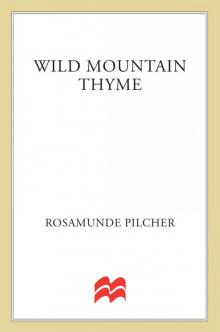 Wild Mountain Thyme
Wild Mountain Thyme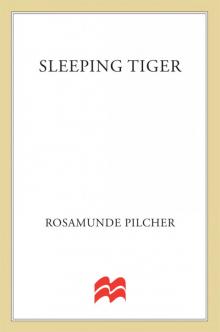 Sleeping Tiger
Sleeping Tiger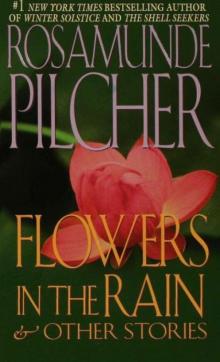 Flowers in the Rain & Other Stories
Flowers in the Rain & Other Stories September
September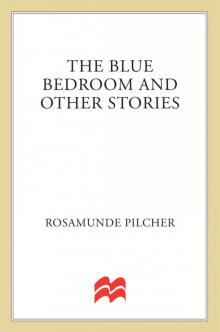 The Blue Bedroom: & Other Stories
The Blue Bedroom: & Other Stories The Carousel
The Carousel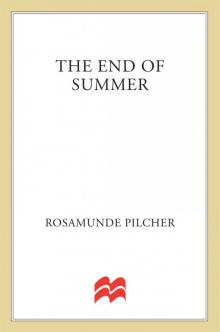 The End of Summer
The End of Summer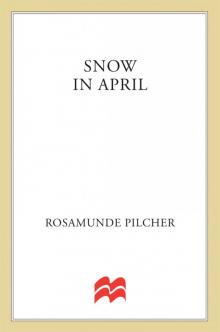 Snow in April
Snow in April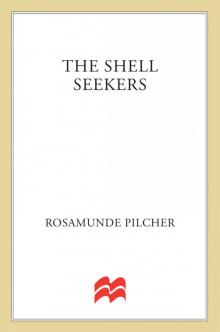 The Shell Seekers
The Shell Seekers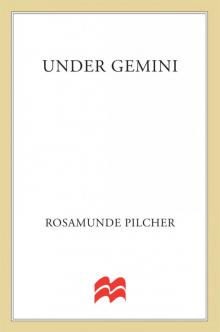 Under Gemini
Under Gemini The Empty House
The Empty House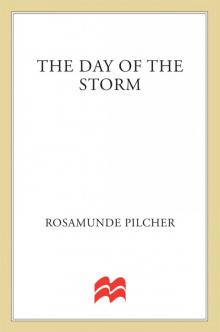 The Day of the Storm
The Day of the Storm Another View
Another View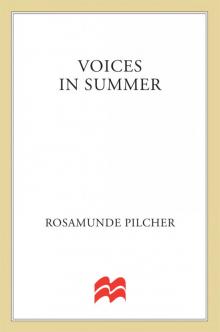 Voices in the Summer
Voices in the Summer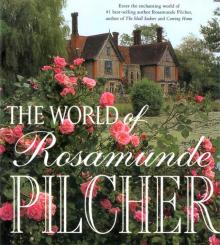 The World of Rosamunde Pilcher
The World of Rosamunde Pilcher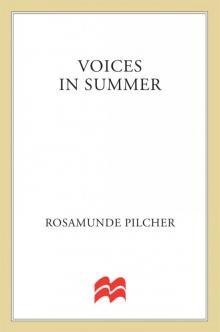 Voices In Summer
Voices In Summer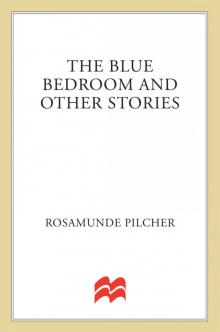 Blue Bedroom and Other Stories
Blue Bedroom and Other Stories